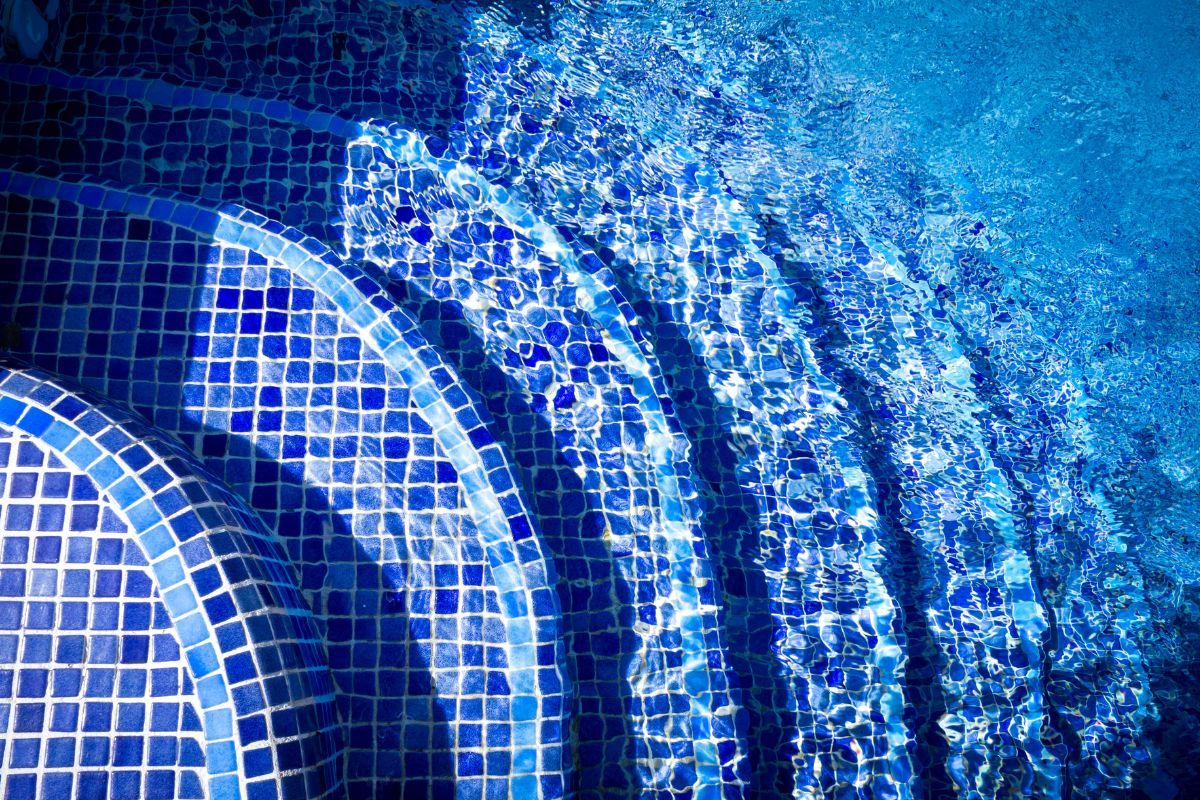
Pool Finishes: A Guide to the 5 Most Popular Types
When it comes to designing the perfect swimming pool, the finish you choose is crucial not only for aesthetics but also for durability. The right pool finish installed by a trusted pool builder near Austin, TX will protect your pool while enhancing its overall beauty and complementing your backyard landscape.
Below are the five most common types of pool finishes to help you make an informed decision.
1. Plaster Finishes
Plaster is the most traditional pool finish and has been used for decades. Made from a mixture of cement, sand, water, and sometimes lime, it offers a smooth surface that's pleasant to the touch. Plaster finishes are available in white or can be dyed to various colors to create a vibrant, inviting pool environment. The main advantages of plaster are its cost-effectiveness and straightforward application process. However, it tends to have a shorter lifespan compared to other finishes, typically requiring reapplication or repair every 5 to 10 years due to susceptibility to staining and cracking.
2. Aggregate Finishes
Aggregate finishes are a step up from traditional plaster and combine plaster mixed with pieces of granite, quartz, river stones, or glass beads. These finishes are applied similarly to plaster but provide a much more durable and visually appealing surface. Aggregate finishes can be exposed or polished:
- Exposed Aggregate: This finish involves applying the aggregate mix and then washing the top layer of plaster away to reveal the stones beneath. It is known for its rugged texture and slip-resistant properties.
- Polished Aggregate: After application, the surface is polished to a smooth finish, enhancing the reflective properties of the materials used, such as quartz or glass beads.
Aggregate finishes are more expensive than plaster but offer extended durability and unique aesthetic options.
3. Pebble Finishes
Pebble finishes are a type of aggregate finish where small pebbles are embedded into the plaster mix. This finish is highly durable and provides a natural, rustic look that many homeowners adore. Pebble finishes are less prone to staining and can last up to 20 years with proper maintenance.
Read: 7 Types of Pools You Should Know
The textured surface also offers better slip resistance than plaster or polished aggregate. However, some find the rough texture less comfortable for walking, and it can be on the higher end of the budget spectrum.
4. Tile Finishes
Tile finishes offer the greatest durability and the highest aesthetic appeal. Ceramic or porcelain tiles can be used, but glass tiles are particularly popular for their vibrant color options and the way they reflect light under water, creating a stunning visual effect. Tiles are highly resistant to chemical damage, staining, and wear. They also allow for a high degree of customization, with possibilities for various patterns and designs. The primary downside is the cost—tile finishes are usually the most expensive and require skilled installation.
5. Fiberglass Finishes
Fiberglass is a pre-formed shell installed into a dug-out pool area, which makes it distinct from other finishes that are applied to a constructed pool base. It offers a smooth, non-porous surface that is resistant to algae growth and stains. Installation is relatively quick and easy, making it a less labor-intensive option than traditional concrete and plaster pools. However, fiberglass pools come in limited shapes and sizes, which might not suit every homeowner’s preference or backyard space.
Choosing the Right Pool Finish
When selecting a pool finish and right pool contractor to do the job, consider the following factors:
- Budget: Determine how much you are willing to spend, as costs can vary widely between the different types of finishes.
- Aesthetics: Think about the desired look and how the pool will complement your outdoor space. Each finish offers a unique appearance, from the simple elegance of plaster to the sparkling allure of glass tiles.
- Maintenance: Consider the level of upkeep you are ready to commit to. Plaster may require more frequent maintenance than more durable options like tile or fiberglass.
- Longevity: Reflect on how long you want the finish to last before needing replacement or significant repairs.
Ultimately, the right finish for your pool will balance aesthetic desires with practical considerations, ensuring that your pool looks as inviting as it is enjoyable. Whether you prefer the natural look of pebble or the sleek shine of tile, there’s a pool finish that will meet your needs and exceed your expectations as long as you use a professional pool builder near Austin, TX like John Pack Custom Pools.
